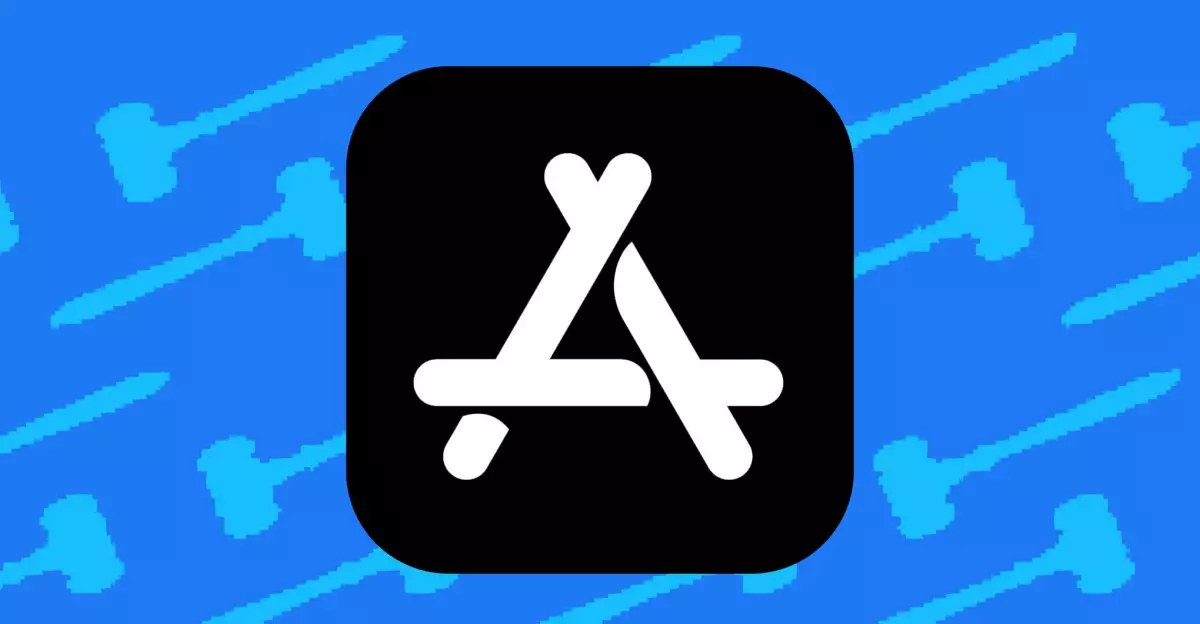In the ever-evolving landscape of digital commerce, the battle between Epic Games and Apple has become emblematic of a larger struggle over power and control within app marketplaces. Epic Games, the developer behind the globally popular game Fortnite, has taken a decisive stand against Apple’s allegedly monopolistic practices. In a recent legal maneuver, Epic has accused Apple of contempt, alleging that it is once again playing games with the submission of Fortnite to the U.S. App Store. This latest clash is a continuation of a high-stakes legal drama that has significant implications for developers and consumers alike.
The friction between Epic and Apple originated from Epic’s attempts to introduce alternative payment methods within Fortnite, a move that directly contradicts Apple’s App Store policies. After Epic’s bold move in 2020 to bypass Apple’s payment system, leading to a now-infamous legal battle, the stakes have only risen. In April of this year, a court order was issued that restricted Apple from rejecting apps solely based on their use of external payment links. Epic’s recent filings argue that Apple is not only disregarding this order but is also punishing Epic for its ongoing litigation efforts.
Contempt of Court: A Serious Accusation
Epic’s assertion that Apple is in contempt of court is critical, as it reveals the growing frustration with Apple’s actions—or inactions—in response to the regulatory landscape. According to Epic, Apple is unjustly holding back the approval of Fortnite, claiming that the delays are indicative of retaliation stemming from the legal conflict. The situation is compounded by Apple’s communication, which has stated that action on the Fortnite app would be postponed until the Ninth Circuit makes a decision regarding a stay on the new injunction.
The idea that Apple is weaponizing its control over the App Store to stifle competition is not just a narrative; it’s a concerning reality that many developers grapple with. When a tech giant like Apple can dictate the terms under which an app is allowed to exist and thrive in its ecosystem, it raises fundamental questions about fairness and the ethical responsibilities of such powerful companies. The response from Judge Yvonne Gonzalez Rogers is pivotal, as her sentiments and decisions could reshape the dynamics of app storefronts and, by extension, the entire digital market.
The Complexities of Compliance and Approval
Epic’s legal documents assert that they have complied with Apple’s guidelines in their submission, contending that any delay in approval is unwarranted and indicative of an ongoing vendetta rather than a straightforward assessment of compliance. However, Apple’s assertion that the app needs to be resubmitted without certain elements to avoid affecting its release in the European market introduces complications that could further prolong the approval process.
This situation showcases the intricate and often convoluted nature of app approval processes in the current digital market. Developers are at the mercy of policies that can shift without warning and are enforced with varying degrees of scrutiny. The argument presented by Epic—that needing to submit multiple versions of the same app for different regions opposes Apple’s own guidelines—highlights the broader issue of inconsistency and lack of transparency in app platform policies.
Judge Rogers and the Future of the Battle
Judge Gonzalez Rogers’ previous rulings play a critical role in the ongoing saga. Her expressed irritation with Apple in her earlier decisions may hint at a growing impatience with its perceived evasiveness. The judge’s potential ruling on Epic’s contempt motion could have far-reaching implications—not just for Apple and Epic but for the entire tech ecosystem. If she sides with Epic, it could embolden other developers who feel similarly trapped under Apple’s weighty guidelines.
As this legal battle unfolds, the ramifications stretch beyond just Epic and Apple. The outcome has the potential to redefine the relationships between tech giants and application developers, potentially opening new avenues for innovation and competition. It is an inflection point in an ongoing conversation about digital marketplaces, emphasizing the need for greater fairness and equitable treatment for all players engaged in the digital economy.
In a world where technology increasingly intersects with everyday life, the Epic-Apple conflict serves as a stark reminder of the responsibilities that come with power—an important lesson for both corporate giants and emerging companies navigating the complexities of digital marketplaces.

